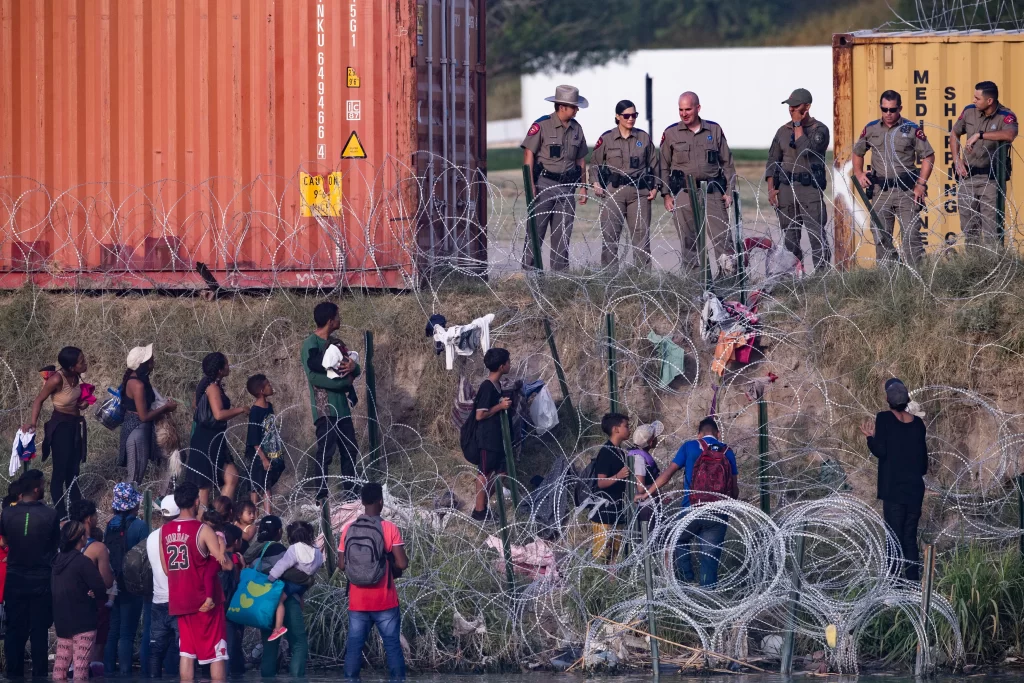Migrant children along Texas’ floating border barrier bear injuries from razor wire, leaving them bloody
Omar Tortua and his family faced a harrowing journey before they waded into the warm river water at Piedras Negras. They had survived the treacherous Darién Gap jungle, traversed six countries, and evaded cartel kidnappers. But the danger reached a distressing peak when, upon reaching the American shoreline, Tortua’s 5-year-old son’s leg got ensnared in a coil of concertina wire installed by Texas officials.

Officers watched from above as Tortua scooped up his bleeding child. The riverbank along the Rio Grande is strewn with remnants of clothing, bearing witness to the many migrants who have fallen victim to razor wire in recent weeks. As federal and state officials clash over Texas’ border security initiative, the migrants who manage to reach the United States suffer visible tolls, with bruises, broken ankles, and rows of surgical staples sealing slice wounds.
An internal e-mail from a Texas state trooper raised concerns about the state’s “inhumane” efforts. As the controversy escalated, revelations about the injuries caused by concertina wire and the floating orange buoys used in the border barrier provoked widespread condemnation from various quarters, including immigrant advocates, Democratic leaders, and the Justice Department.
The situation on the riverbanks is dire, with migrants, including children, arriving at shelters with lacerations, welts, open wounds, and other injuries. Pregnant women experience heightened stress, and some require hospitalization. The use of razor wire has drawn criticism for restricting access to the river by U.S. Border Patrol agents, hindering their ability to assist migrants in distress.
Despite mounting complaints, Texas continues to deploy concertina wire along the Rio Grande as part of Operation Lone Star, a state initiative to deter unauthorized border crossings. The razor wire and floating buoys have stirred legal debates, with experts arguing that Texas may be overstepping its authority and violating international treaties.
Behind Heavenly Farms, a pecan grove on the riverbanks in Eagle Pass, miles of concertina wire are coiled, and the landscape is patrolled by vehicles and troops. Numerous migrants have been caught in the wire, and pleas to remove it have gone unanswered.
The stories of migrants, including families with young children, reveal instances where they were ordered to return to Mexico or forced to trek downriver after attempting to cross. Such experiences have left migrants traumatized and questioning the humanity of the United States.
As the situation continues to evolve, various authorities and organizations are grappling with the human toll and the complex legal issues surrounding the use of concertina wire and floating buoys in Texas’ border security measures. The future implications and repercussions remain uncertain.



